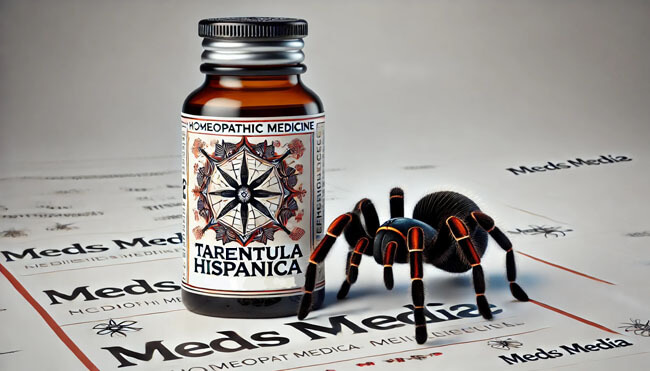In homeopathy, remedies are not just aimed at treating physical ailments but also take into account the emotional, psychological, and behavioral traits of individuals. Causticum is a deeply constitutional remedy often prescribed for individuals whose physical and mental state matches the comprehensive profile of this remedy. It manifests mainly in chronic rheumatic, paralytic, and catarrhal affections but is also marked by distinct mental and emotional characteristics that are vital for a successful homeopathic prescription.
Brief Overview of the Causticum Personality
The Causticum personality is characterized by deep empathy, an intense sense of justice, and a profound emotional sensitivity. Individuals requiring this remedy often exhibit emotional distress stemming from long-lasting grief or trauma. They may be prone to hopelessness, yet their compassion and willingness to help others often stand out. Physically, they tend to develop chronic and debilitating conditions affecting the joints, muscles, and nerves. The hallmark of a Causticum patient includes paralytic symptoms, rheumatic pain, and a strong inclination toward physical and emotional suffering.
Peculiar Symptoms of CAUSTICUM
- Chronic Paralytic and Rheumatic Affections: Progressive loss of muscular strength, leading to paralysis of localized parts such as vocal cords, bladder, and eyelids.
- Tearing, Drawing Pains: Present in muscles and fibrous tissues, particularly affecting joints, with associated deformities and tendinous contractures.
- Restlessness and Weakness at Night: Individuals experience tearing pains in the joints and bones, often combined with a faint-like sinking of strength at night.
- Paralysis of Various Muscles: Causticum patients exhibit partial paralysis in several areas, such as the tongue, face, bladder, and extremities, leading to symptoms like difficulty swallowing and facial paralysis.
- Emotional Sensitivity and Grief: Causticum types are emotionally affected by long-lasting grief or trauma, becoming intensely sympathetic and prone to sadness and hopelessness.
- Burning Sensations and Soreness: Burning rawness and soreness are prominent, especially in the chest, skin folds, and joints.
- Warts and Skin Issues: The skin is dirty white or sallow, with large, jagged warts on the face or fingers. Old burns may reopen, and scars (cicatrices) may freshen up.
- Involuntary Urination: Urine may be expelled involuntarily when coughing, sneezing, or during the first sleep at night.
- Slow to Develop in Children: Causticum is indicated for children who are slow to walk, with weak ankles and unsteady walking.
- Cough and Hoarseness: Dry coughs, with raw chest pain and hoarseness, often worse in the evening and accompanied by hip pain. The voice may echo in the ears, causing distress.
- Acid Dyspepsia and Digestive Issues: Sensation as if lime is burned in the stomach, with an aversion to sweets and discomfort after eating fresh meat.
- Sciatica and Numbness: Left-sided sciatica with accompanying numbness, often worse in the evening and relieved by warmth.
- Nocturnal Sleeplessness: Despite feeling drowsy during the day, patients often suffer from dry heat and restlessness at night, preventing them from sleeping.
- Joint Stiffness and Cracking: Cracking, tension, and stiffness in the knees and other joints, often worse in cold or at night, and improved by warmth.
Mental and Emotional Characteristics
- Intense Sympathy and Sensitivity: Causticum personalities are incredibly empathetic. They tend to internalize the suffering of others, which often exacerbates their own emotional turmoil. Their compassion is strong, sometimes to the point of overwhelming them emotionally.
- Sadness and Hopelessness: One of the primary emotional traits of Causticum individuals is a pervasive feeling of sadness and despair. They often feel weighed down by grief and the pressures of life, which can result in a general state of hopelessness. These feelings are frequently triggered by past traumatic experiences or a sense of injustice.
- Fear and Anxiety: Causticum personalities tend to suffer from anxiety, particularly when thinking about their ailments. This is especially evident in children, who may exhibit a fear of being left alone at night, becoming tearful over the smallest things.
- Emotional Aggravation: Thinking about their health issues often worsens the complaints in Causticum individuals. This mental aggravation is seen in both their emotional and physical symptoms. For example, anxiety over hemorrhoids or other chronic conditions may exacerbate those ailments.
Physical Characteristics
- Chronic Rheumatism and Paralysis: Causticum is well known for its action on the musculoskeletal system, particularly in chronic rheumatic and paralytic conditions. Patients frequently suffer from tearing, drawing pains in the muscles and fibrous tissues, with deformities around the joints. The gradual loss of muscular strength, tendinous contractures, and the development of localized paralysis (e.g., facial paralysis, ptosis, or vocal cord paralysis) are prominent physical traits.
- Skin Afflictions: Causticum individuals typically have dry, dirty-white, sallow skin. Warts, particularly on the face or fingers, are common. They may also experience recurrent issues with burns, where old injuries fail to heal properly or wounds reopen.
- Respiratory Issues: Causticum personalities are prone to catarrhal affections, manifesting as hoarseness, aphonia (loss of voice), or chronic coughs with raw, sore sensations in the chest. These respiratory symptoms are often worse in the evening and may be accompanied by sciatica or hip pain during coughing.
- Urinary Symptoms: They often exhibit involuntary urination when sneezing or coughing, as well as urinary retention following surgeries or due to paralysis of the bladder muscles.
- Other Symptoms: Causticum individuals may experience scaly noses, ulcers, or pimples. They might develop cataracts or eye conditions with motor disturbances. Gums tend to bleed easily, and dental issues, such as fistulas, are common.
Behavioral Patterns
- Restlessness and Insecurity: Causticum patients frequently experience restlessness, especially at night, leading to insomnia or difficulty sleeping. This is often due to physical discomfort from tearing pains in the joints or emotional agitation.
- Slow Development in Children: Children with Causticum traits are often slow to develop physically. They may be delayed in walking and tend to fall frequently due to weak ankles or general unsteadiness in their movements.
- Tendency Toward Rigidity: Physically and emotionally, Causticum personalities may exhibit a sense of rigidity. This is evident in their muscular and joint issues, as well as in their thinking, where they may become stuck on past griefs and injustices.
Associated Diseases
Causticum is indicated in the following conditions:
- Rheumatism and Paralysis: It is often prescribed for chronic conditions where the patient suffers from progressive muscular weakness, contractures, and deformities around the joints.
- Respiratory Disorders: The remedy is useful for chronic hoarseness, coughs, and catarrhal conditions affecting the vocal cords and respiratory system.
- Skin Conditions: Causticum treats conditions such as warts, non-healing burns, and recurrent cicatrices (scar tissue reopening). The skin is typically dry and dirty-looking.
- Neurological Symptoms: Causticum is indicated for paralysis of various parts, such as the facial muscles, tongue, or limbs. It may also treat sciatica, particularly left-sided, with accompanying numbness or weakness.
- Urinary and Digestive Issues: The remedy helps with urinary retention, incontinence during sneezing or coughing, and digestive disturbances like acid dyspepsia.
Miasmatic Personality of CAUSTICUM
In homeopathic philosophy, Causticum is predominantly associated with the sycotic miasm, a chronic predisposition to certain diseases. Individuals with this miasmatic background are prone to conditions that involve hardening, deformities, or abnormal growths, such as warts and contractures. These patients often exhibit a deep sense of pessimism and emotional suppression, with illnesses progressing slowly and degeneratively.
The sycotic miasm, present in Causticum personalities, manifests as a tendency towards chronic, long-standing ailments that linger and worsen over time, particularly affecting the joints, muscles, and skin.
Conclusion
The Causticum personality is a complex portrait of emotional depth, physical suffering, and chronic conditions. Homeopathically, it is ideal for individuals who are profoundly empathetic, often struggling under the weight of long-standing grief or trauma. Their physical ailments are slow to develop but deeply entrenched, manifesting as progressive paralysis, rheumatic pain, and catarrhal afflictions. Recognizing this constitutional type helps practitioners prescribe Causticum not only for the physical symptoms but also for the deep-seated emotional and psychological challenges associated with this remedy.
Why Meds Media guides are different
We focus on clear, practical explanations of homeopathic and natural health topics so you can understand remedies, symptoms, and lifestyle changes in simple language.
Meds Media is an educational resource only. Always consult a qualified doctor or homeopathic practitioner before starting, stopping, or changing any treatment.
Similar Posts You may also like
Zincum Picricum Homeopathic Medicine & Personality | Uses, Benefits & Indications
Zincum Phosphoricum Homeopathic Medicine & Personality | Uses, Benefits & Indications
Zincum Iodatum Homeopathic Medicine & Personality | Uses, Benefits & Indications
Zincum Bromatum Homeopathic Medicine & Personality | Uses, Benefits & Indications
Zea Homeopathic Medicine & Personality | Uses, Benefits & Indications
Zincum Aceticum Homeopathic Medicine & Personality | Uses, Benefits & Indications
Zincum Cyanatum Homeopathic Medicine & Personality | Uses, Benefits & Indications
Zincum Muriaticum Homeopathic Medicine & Personality | Uses, Benefits & Indications
Zincum Oxydatum Homeopathic Medicine & Personality | Uses, Benefits & Indications
Zincum Sulphuricum Homeopathic Medicine & Personality | Uses, Benefits & Indications

Phosphorus Homeopathic Medicine & Personality | Uses, Benefits & Indications

Veratrum Viride Homeopathic Medicine & Personality | Uses, Benefits & Indications

Spongia Tosta Homeopathic Medicine & Personality | Uses, Benefits & Indications

Zingiber Officinale Homeopathic Medicine & Personality | Uses, Benefits & Indications

Sulphur Homeopathic Medicine & Personality | Uses, Benefits & Indications

Tarentula Hispanica Homeopathic Medicine & Personality | Uses, Benefits & Indications

Gelsemium Homeopathic Medicine & Personality | Uses, Benefits & Indications

